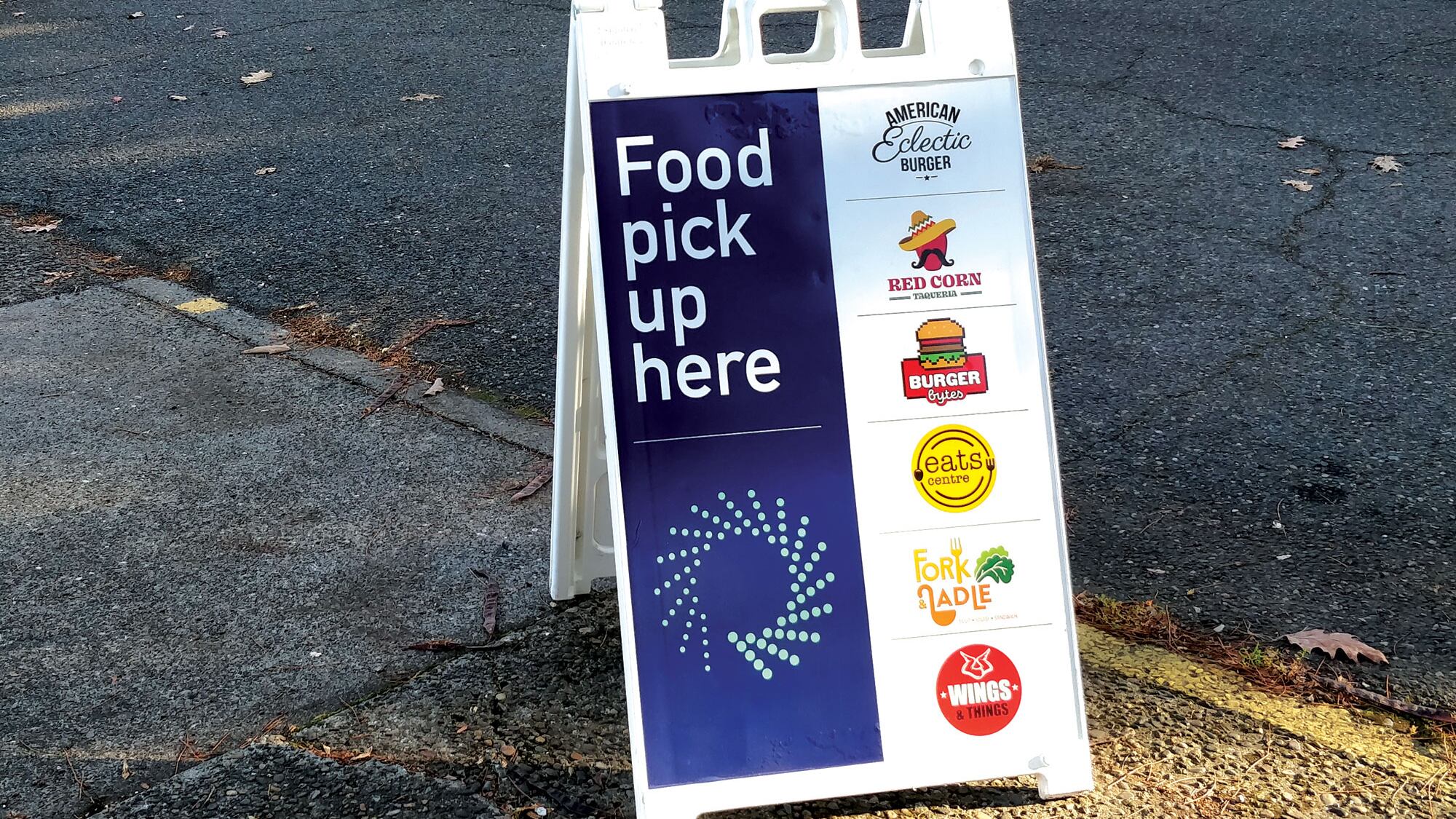If you're a frequent user of third-party food delivery apps, it's possible you've eaten at a restaurant that doesn't actually exist.
In the lucrative space of apps like Postmates, Uber Eats, Grubhub and DoorDash, brands are making use of "virtual restaurants." It's not as high-tech as it sounds—you're not getting chicken wings wired to you through two-day Amazon delivery or anything like that. Effectively, virtual restaurants, or "ghost kitchens," as they're also called, are commercial kitchens accessible only via partnered apps, often with multiple "businesses" operating under one roof.
Florida's Reef Technology operates six such "ghost kitchens" on Portland's westside. Formerly known as ParkJockey, the company owns 4,500 parking lots nationwide. In June, the renamed Reef decided to use some of those lots to house its kitchens, which are basically food trucks equipped with a set of cooks who prepare food from up to eight of Reef's virtual brands at once. The plan is to open 20 kitchens in Portland by the end of the year.
"We're not competing with the restaurants," says Kevin O'Connell, Reef's Portland city director. "We're just giving people fast-casual food and the opportunity to not leave the house."
Scrolling through Uber Eats or DoorDash, there's nothing to suggest Reef brands like "Wings & Things" and "Burger Bytes" don't have established storefronts. Open until midnight, the clear target is the sluggish and intoxicated—those craving grease and salt, and who only require that the food arrives fast, hearty and edible.
It's an economic no-brainer, according to O'Connell. Customers get quality food in a shorter amount of time, at later hours and at a competitive price. Meanwhile, without the costly expenses of waitstaff and rent, Reef can afford to pay its employees more than they might at a traditional brick-and-mortar..
"I pay my cooks in these execution kitchens more than the average line cook would make around town because all they're doing is cooking," he says, adding that his line cooks start at $18.50 per hour, $6 above the Portland minimum wage.
The bitmoji-led marketing of these virtual restaurants is generic for a reason. At first glance, they could almost pass as the poor man's version of those chain restaurants you know and tolerate—Fork & Ladle openly brands itself as an off-label Panera Bread.
But the truth is, these meals aren't actually that cheap. Between the service fee, tip, delivery, and inexplicable premium on the e-meals themselves, a single person can end up spending around $20 on any given order—the same price you'd pay for lunch at that artisanal sandwich joint with the exposed brick you love.
With this in mind, I ordered one week of exclusively virtual lunches—mostly using DoorDash—to see how these vagabonds of the restaurant world stack up to the real thing.
Day 1: Fork & Ladle
My order: The Cali BLT and chicken noodle soup
If nothing else, this first encounter with the virtual kind was fast—a cool 27 minutes from confirmation to delivery. A typical order from an established storefront can easily double this time. Sadly, the buyer's high of near-instant gratification wore off quickly. The soup arrived lukewarm, and my request to hold the mayo was ignored. The BLT was promising, with thick slices of salty bacon, fresh tomato, iceberg lettuce, and only slightly underripe avocado layered inside the type of roll you might defrost from the grocery store. It's easy to finish, and you could almost consider it good if it didn't cost $9.50.
Total cost: $17.35.

Day 2: Burger Bytes
My order: Cheeseburger with lettuce and tomato
In 33 minutes, the single burger was delivered in a comically large paper bag, with no seepage, mistakes or other cardinal sins committed. Burger Bytes serves the thin, soft, fast-food burgers you'll recognize from your drive-thru of choice: two stacked patties with soupy, mild cheddar and modest servings of any sauces or extras you request. Fans of the loaded, bespoke burgers found at Portland's buzzy food carts and gastropubs won't be impressed, but it wasn't really made with them in mind.
Total cost: $16.75.
Day 3: American Eclectic Burger
My order: Chicken tenders with fries
In theory, this is the 11:45 pm Saturday night meal of your dreams—four chicken tenders from the world's most hulked-up chickens served over a bed of skinny fries and dropped at your doorstep. It's the type of food where anything less than an outsized portion is a rip-off. Unfortunately, with the hour-and-10-minute delivery time, you're almost certain to be dead to the world by the time the meal arrives. If you're still awake from hunger-induced delirium, you'll find the tenders bland and forgettable, if mostly inoffensive. The skinny fries were cold, served stale and dry, as though they were left over from the first batch of the day.
Total cost: $16.08.
Day 4: Wings & Things
My order: Boneless chicken wings with medium Buffalo sauce
Switching to UberEats, the 10 boneless chicken wings managed to arrive in 45 minutes. Requesting medium heat on a chicken wing is really playing Russian roulette with your taste buds, but the spice did manage to lie somewhere between Sriracha and heavy sweating. The Buffalo sauce—that timeless mashup of hot sauce, butter, and Worcestershire—was sharp, with a brassy, peppered kick anyone could handle. Still, no poultry gymnastics can justify the price.
Total cost: $17.34.
Day 5: Red Corn Taqueria
My order: Shrimp tacos with cilantro rice
A sad end to a week of virtual junk. Red Corn Taqueria was the elusive of Reef's virtual restaurants, primed for visibility at the top of the app but impossible to order from. Two orders during the week were never picked up, and the final attempt, while confirmed by the app, could not be delivered to the "Dasher" because Red Corn did not see the request. We'll always have Fork & Ladle.
Total cost: $14.41.
